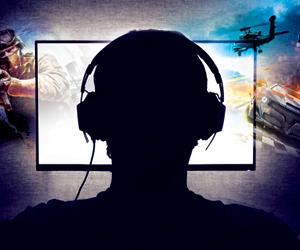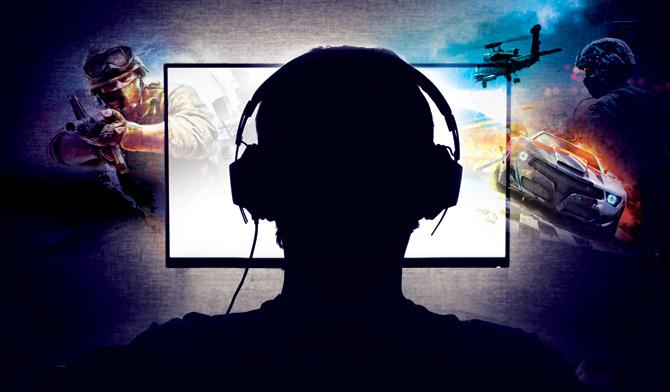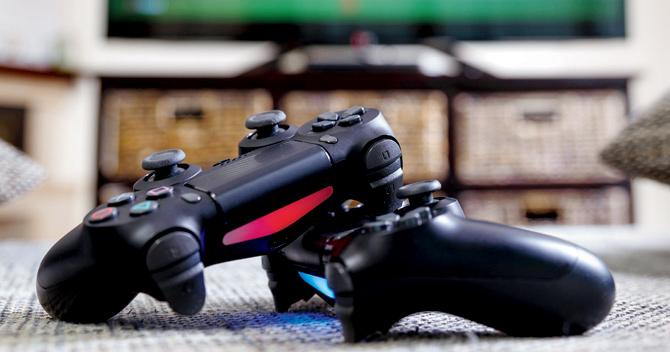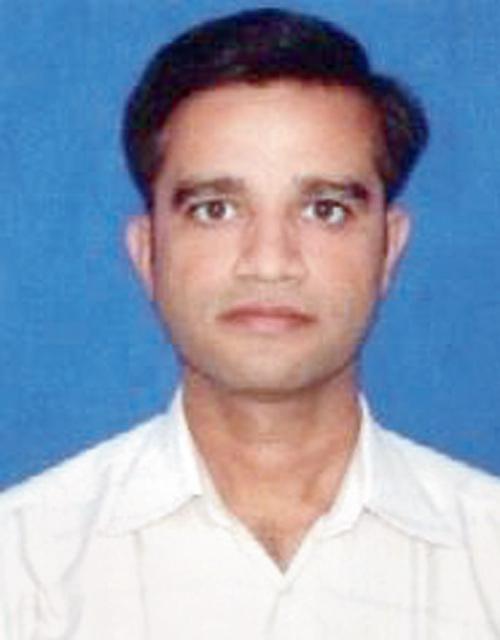With the WHO set to recognise gaming addiction as a mental health disorder, experts weigh in on when the seemingly innocuous pastime takes a turn for the worse and how bad the situation here is


Imaging/Ravi Jadhav
Actor David Schwimmer was on to something when in an episode of Season 8 he directed for TV sitcom Friends, he gave Chandler a frozen claw, thanks to the hours he had spent perfecting Ms Pac-Man, the popular arcade game of the '80s and '90s. The claw was gone by the next episode but not before it had highlighted — in jest, of course — what mindless gaming can do. Fast-forward to nearly two decades later, and we are not just staring at the physical repercussions of indulging in video and online games, but also its huge cost to mental health. In the recently released beta draft of its 11th Revision of the International Classification of Diseases, the World Health Organisation has included gaming disorder in its list of mental health conditions.
ADVERTISEMENT
The final document is scheduled for publication in mid-2018. The draft defines gaming disorder as "a pattern of gaming behaviour ('digital-gaming' or 'video-gaming') characterised by impaired control over gaming, increasing priority given to gaming over other activities to the extent that gaming takes precedence over other interests and daily activities, and continuation or escalation of gaming despite the occurrence of negative consequences".

How bad is the situation in India? Serious enough for the country's premier mental health institution, NIMHANS (National Institute of Mental Health and Neurosciences), to set up SHUT (Service for Healthy Use of Technology) Clinic in Bengaluru in 2014; it was the first such initiative in India to assess technology addiction. A 2016 study co-authored by Dr Manoj Kumar Sharma, additional professor of clinical psychology at NIMHANS and coordinator for SHUT Clinic, explored the pattern of technology usage among 200 randomly selected participants from 13 to 17 years. The results revealed that addictive use of gaming was the highest (19.5 per cent), followed by addictive use of the Internet in general (18 per cent). Its use was also found to be associated with difficulties in routine activities including academics, sports, socialising, and emotional difficulties. However, while gaming is most popular among young adults, its impact extends to younger and older age groups too.
"Gaming is a major reason for seeking help in our clinic. We see seven to eight cases of gaming addiction every week. And among them we see 10 to 14 hours of technology usage per day," shares Dr Sharma. "This recognition by the WHO will bring sensitisation among mental health professionals to screen the condition, which would lead to intervention, and the use of educational programmes to promote healthy use of technology," he adds.

DrâÂu00c2u0080Âu00c2u0088Rohan Sequeira
Seeds of addiction
What starts as an innocuous pastime, often because youngsters see others in their age group enjoy gaming, may turn into an addiction if other factors come into play. "Stress, loneliness, boredom or lack of communication among family members tends to make gaming enthusiasts seek further solace in their consoles,"
explains Dr Sharma.
"Kids, especially in Mumbai, live restricted lives. With the pressure of studies and limited avenues for outdoor activities, gaming becomes an outlet for many," elaborates Mumbai-based consulting psychiatrist and author Dr Dayal Mirchandani. Dr Rohan Sequeira, consultant physician, cardiovascular diabetologist and obesity consultant at Jaslok Hospital and Research Centre, explains the process. "Addiction starts setting in when there is a biochemical process already in motion, which gives you physical or emotional satisfaction. This sends positive signals to the brain, which gets increasingly dependent on the activity or substance," he says, adding, "Addiction to gaming is based on the effect of gratification because when you score or reach a certain level in a game, there is a false sense of achievement, which feeds into the psyche."

Dr Manoj Kumar Sharma
The experts also point to how games are designed to keep users hooked. Most gamers start with offline versions until they get introduced to the world of online gaming with multiple users across continents, which becomes highly competitive. The availability of cheap or free Wi-Fi has made gaming widespread, too. "Some youngsters spend so much time gaming that they rationalise it by calling it their training to become game developers. Others are enticed to turn game testers by trying out beta versions," says Dr Mirchandani.
The fallout
The impact of gaming addiction varies across age groups, but the common thread that runs through all cases is that it becomes a substitute for human relationships. Dr Mirchandani recalls seeing a pilot, who would come back from a flight and lock himself in a room. "His wife suspected him of having an affair. But we ultimately realised that he had turned into a gaming addict," he says. The case of a 16-year-old, who was brought to Dr Sequeira by his parents, highlights the physical impact of gaming addiction. "He was experiencing muscular pain to the point that he couldn't hold a pen.
The initial analysis indicated that he had cervical pain, but then the parents told me that he would spend hours together before the computer and mobile until 4 or 5 in the morning. Then he confessed to me that he was addicted to an online reality game, which he was playing with people across continents, so he was compromising on his sleep," he says. "Nutritional and sleep deficiency, extreme fatigue, irritability, muscle cramps, headache and double vision also crop up." Studies and performance at the workplace take a huge hit, too.
Reclaiming normalcy
Like any addiction, gaming has its withdrawal symptoms. Dr Mirchandani advises parents against stopping their child's gaming activity abruptly. The SHUT Clinic too believes in weaning an individual off gaming gradually. "We recommend lifestyle changes, better eating habits, setting aside some tech-free time every day, and taking a five-minute break after every half an hour of gaming. It yields results," says Dr Sharma.
Discipline, according to Dr Sequeira, is the biggest help. "If you can't control your gaming time, find an accountability partner in a family member," he advises. But prevention is better than cure, says Dr Mirchandani. "Parents need to set an example by being mindful of their own screen time." Dr Sequeira concurs, "All addictions were at some point obsessions, and all obsessions begin as affection."
Download the new mid-day Android and iOS apps to get updates on all the latest and trending stories on the go
 Subscribe today by clicking the link and stay updated with the latest news!" Click here!
Subscribe today by clicking the link and stay updated with the latest news!" Click here!







